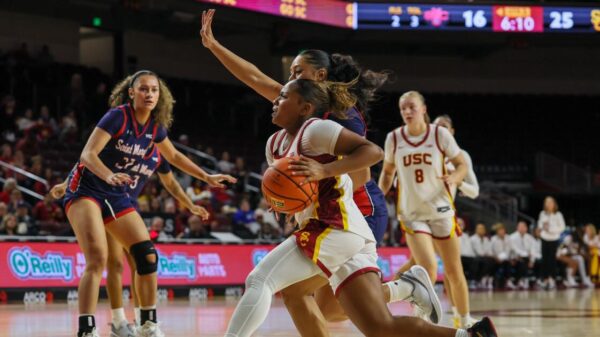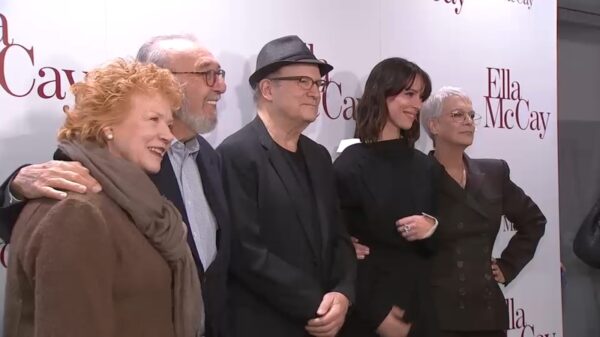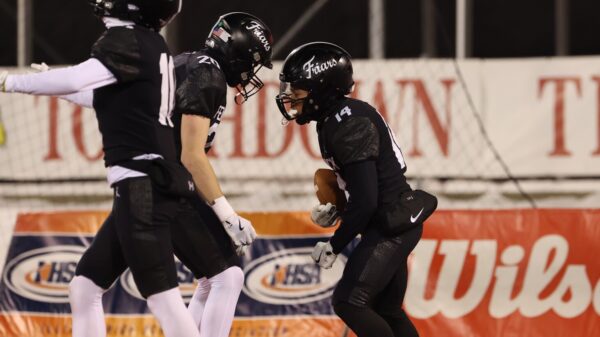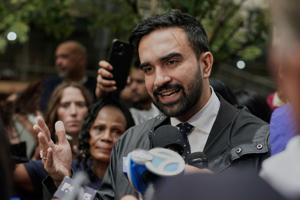The campaign of Zohran Mamdani for mayor of New York City has ignited a wave of anti-Muslim rhetoric, reflecting challenges faced by Muslim Americans in the political arena. His rapid rise as a potential first Muslim mayor has attracted both admiration and hostility, particularly from conservative figures. As the election approaches in November, Mamdani’s candidacy serves as a focal point for discussions on Islamophobia and representation in American politics.
Mamdani, a Democratic nominee, has drawn attention for his progressive platform, which includes criticism of Israel. This has resulted in a backlash from right-wing politicians. For instance, Republican Representative Andy Ogles of Tennessee referred to Mamdani as “little muhammad” and advocated for his deportation. Additionally, GOP Representative Nancy Mace of South Carolina has linked Mamdani to September 11, 2001, in social media posts, while far-right activist Laura Loomer alarmingly suggested that New York City is on the brink of a second attack.
These remarks are not isolated incidents; they reflect a broader pattern of anti-Muslim sentiment that has intensified since the events of 9/11. Youssef Chouhoud, a political scientist at Christopher Newport University, noted that Mamdani’s campaign symbolizes the struggle against discrimination while also highlighting the assertion of Muslim Americans to play leading roles in society.
Political violence has emerged as a serious concern. Following the assassination of conservative activist Charlie Kirk, who had made inflammatory comments about Mamdani, threats against the candidate have increased. A Texas man was charged with making death threats against Mamdani, labeling him a terrorist and asserting that Muslims do not belong in the United States. Mamdani’s campaign condemned these threats, stating they represent a “broader climate of hate.”
The rise of anti-Muslim bias has been persistent since the early 2000s, with various forms of discrimination manifesting in society. The New York City police previously operated a controversial surveillance program targeting Muslims, and there has been significant backlash to Muslim community initiatives, such as the proposed Islamic center in lower Manhattan in 2010. Eman Abdelhadi, a sociologist at the University of Chicago, explained that anti-Muslim rhetoric often portrays Muslims as outsiders and a threat to American values.
Despite this challenging landscape, Mamdani’s supporters remain hopeful. Figures like Amani Al-Khatahtbeh, who previously faced slurs as a candidate for Congress, recognize the dual reality of increased visibility and persistent discrimination. Al-Khatahtbeh described the current moment as one of “unprecedented visibility and influence” for Muslims in political spaces, alongside a normalization of dehumanization.
The political climate has also shifted in the context of ongoing tensions, particularly following the recent conflict in Gaza. Accusations of antisemitism have surfaced in the mayoral race, with former Mayor Eric Adams and former Governor Andrew Cuomo labeling Mamdani as “dangerous” due to his critiques of Israel. This has led to further distancing from Mamdani among some Democratic figures, highlighting the complexities of navigating identity and political affiliation.
Mamdani’s allies, including Shahana Hanif, the first Muslim woman elected to the New York City Council, express optimism about his potential victory. Hanif emphasized that the fear tactics associated with Islamophobia are ineffective. Supporters like Hanan Thabet, whose children have actively engaged in Mamdani’s campaign, see his candidacy as a hopeful future for representation.
In a landscape marked by rising tensions, Mamdani’s campaign embodies both the struggles and aspirations of Muslim Americans. “We cannot and will not be intimidated by racism, Islamophobia, and hate,” stated his campaign, underscoring a commitment to resilience in the face of adversity. As the election approaches, Mamdani’s journey continues to resonate with many, reflecting broader themes of representation and the fight against discrimination in America.






































































